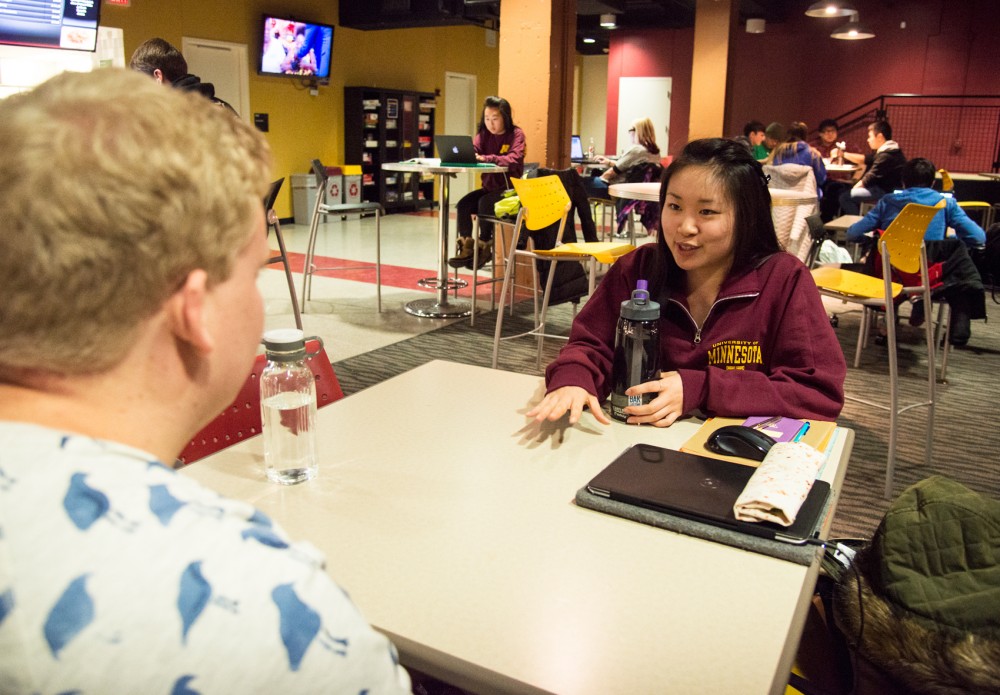When Collin Bradley went through the College of Liberal Arts’ First Year Experience program, he said it was utter chaos.
“I went through three program assistants during this time, which meant I never really got to know any of them personally,” Bradley said.
Now, he’s a senior and an FYE section leader.
In recent years, the program has made significant changes to course curriculum, including redefining the roles of its student section leaders, said Paul Spangle, FYE course creator and assistant director for student engagement and first year programs.
Program assistants — whose roles traditionally fell somewhere between teaching assistants and mentors — are now fully characterized as mentors in order to facilitate personal relationships with their students.
“Students are asking questions, sharing concerns and seeking help from their section leaders,” said senior team leader Zhengqi Xiao.
More than three-quarters of students agreed in a fall 2015 survey that when they needed help over the semester, they knew they could reach out to their section leader.
In 2013, 42 percent of students found connecting one-on-one with their program assistants to be “not at all useful.”
The first year program, which is meant to help new enrollees adjust to collegiate life, has also shifted the types of assignments handed out to students.
In the past, Bradley said, students didn’t perceive the assignments as useful. Now, they’re more engaging, he said.
“Instead of telling students what they need to learn — which was what I experienced — we are now letting students explore their interests,” Bradley said.
Assignments cover twelve different tracks, ranging from career fair preparation to study abroad opportunities. Students can choose from the different tracks as part of three-week-long curriculum modules.
Bradley said he feels this new approach will shift students’ perspective of the course, focusing on building skills instead of busywork.
According to the fall survey, nearly 60 percent agreed the course helped them to be more confident as students.
Still, not everyone is convinced that the class is now worthwhile.
For students with full course loads, the extra work takes away time and focus from other obligations, said Brianna Hanson, first-year political science student.
“There were maybe two helpful assignments last semester, and the rest force me to take time out from [other] classes to do something for the sake of doing it,” she said.
There is potential for the class to be helpful, Hanson said, but it is too one-dimensional to work in its current form.
“CLA is so broad that perhaps one flavor of FYE classes just isn’t enough,” she said.
Despite criticism, the introductory experience is crucial for first-year students’ future success — both within CLA and after graduation, Spangle said.
“Being a college student is challenging,” he said. “Through this program, we are there for those students who might just feel like something is a little off, but they aren’t sure who to turn to.”


